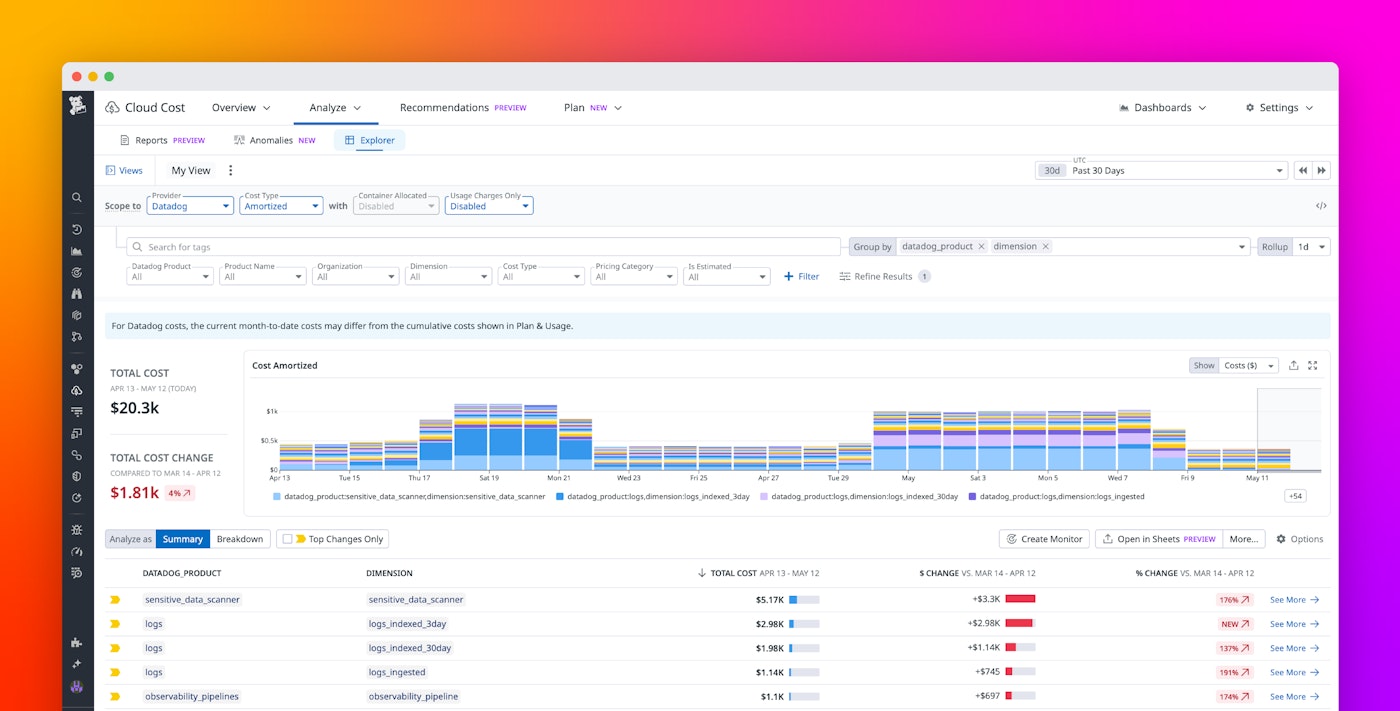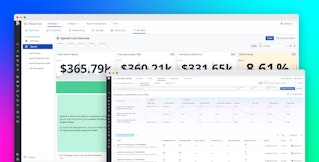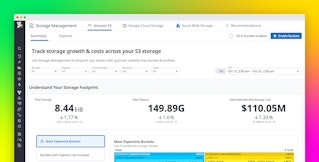
Katherine Broner

Patrick Krieger
As your organization scales its Datadog footprint, you want to understand what’s driving cost changes and promote cost awareness. But to take meaningful action, you need more than a monthly bill—you need real-time, contextualized cost data tied to services and teams. Without this visibility, it’s hard to assign ownership, prevent cost overruns, or identify which changes are affecting spend.
With Datadog cost data in Cloud Cost Management (CCM), you can now understand how much it costs to run your Datadog services, allocate spend to the right teams, and proactively manage spend. Datadog cost metrics are available across CCM Explorer, dashboards, notebooks, monitors, and budgets, so teams can prioritize cost in their day-to-day activities.
With Datadog cost data embedded into familiar workflows, it’s easier than ever for you to promote cost accountability. In this post, we’ll explore how Datadog cost data helps you:
- Enhance cost accountability across teams
- Reduce cost surprises
- Understand your total cost of ownership with CCM
Enhance cost accountability across teams
You can now analyze your Datadog costs on CCM’s Explorer page. In Explorer, you can query cost data the same way that you can query performance metrics and health metrics—helping you connect observability with financial impact. Whether you’re troubleshooting an issue or planning a new deployment, you can quickly assess how those decisions might affect your spend.
You can filter costs by datadog_product, dimension, and other tags to pinpoint where your costs are coming from. In the example shown in the following screenshot, the logs and sensitive_data_scanner products are driving the larger changes in spend.
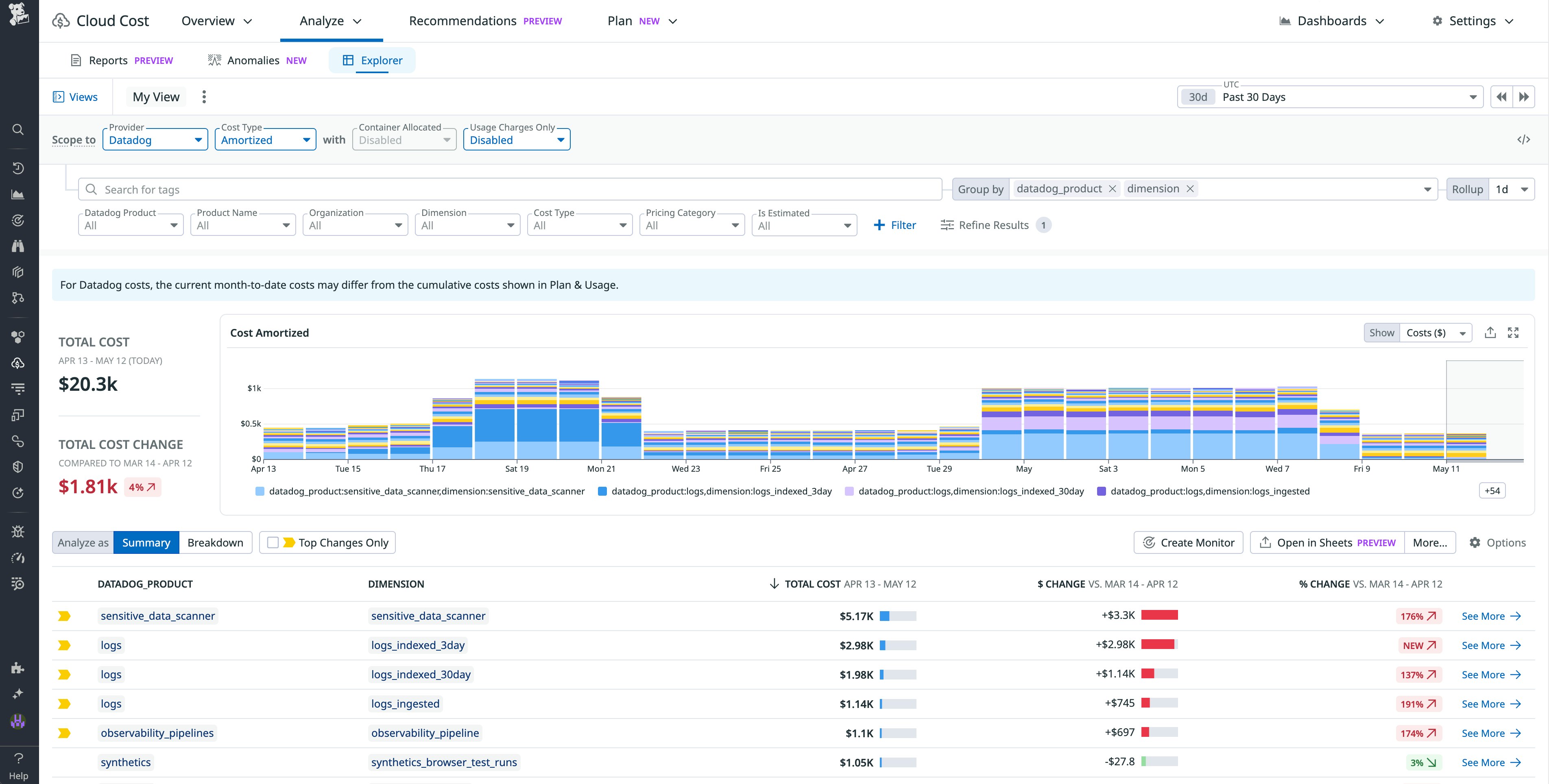
Next, you can dig deeper with the out-of-the-box dashboard for Datadog costs. Here, you can use a filter to show cost increases for your logs product. You can then check to see the specific log retention periods that are driving changes in spend.
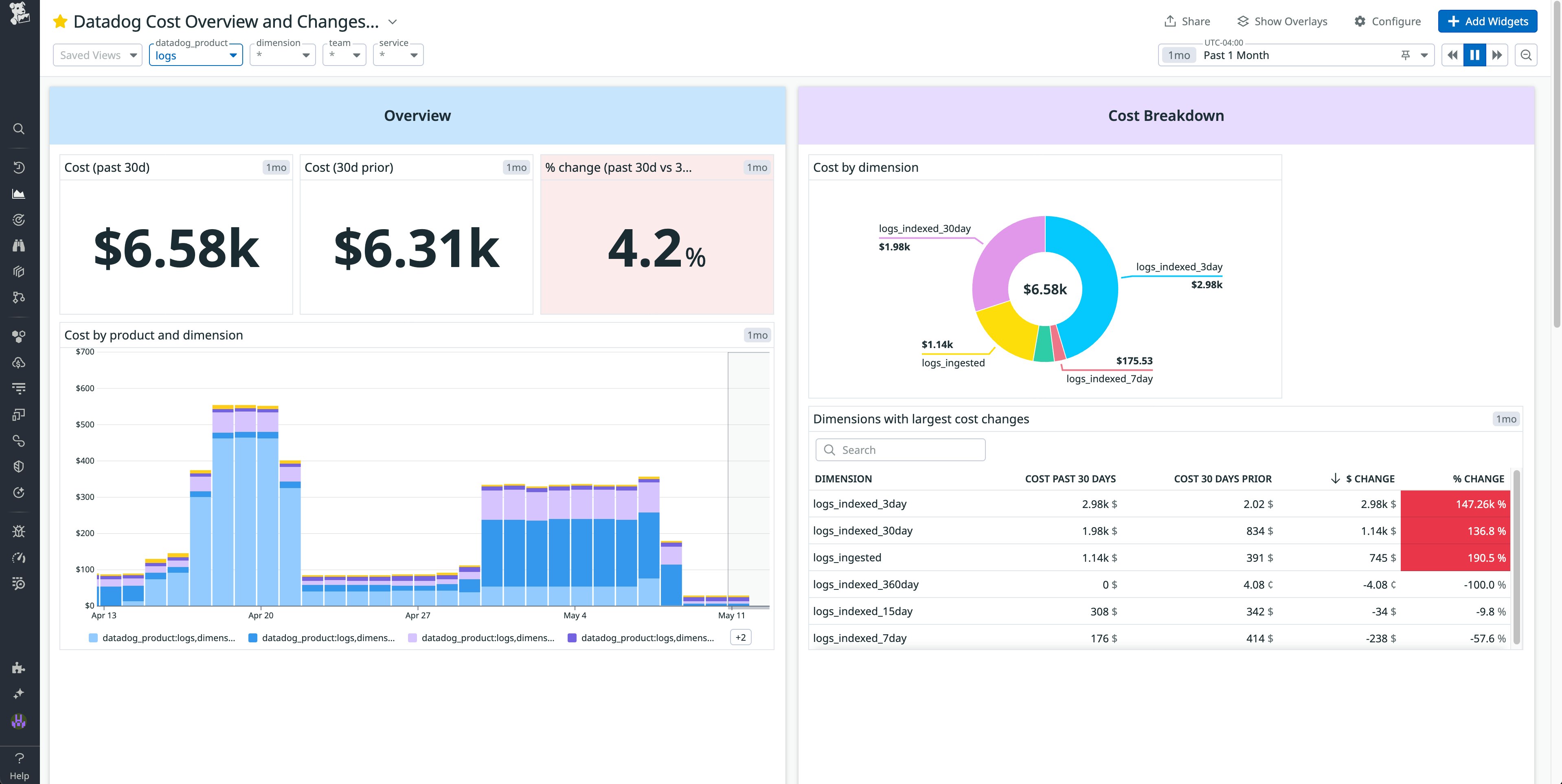
With Usage Attribution, you can get even more details by applying up to three custom tags to map costs to the exact teams and services that are responsible for the costs. You can export that information to a Datadog Notebook and send the notebook to the appropriate service owner to investigate further.
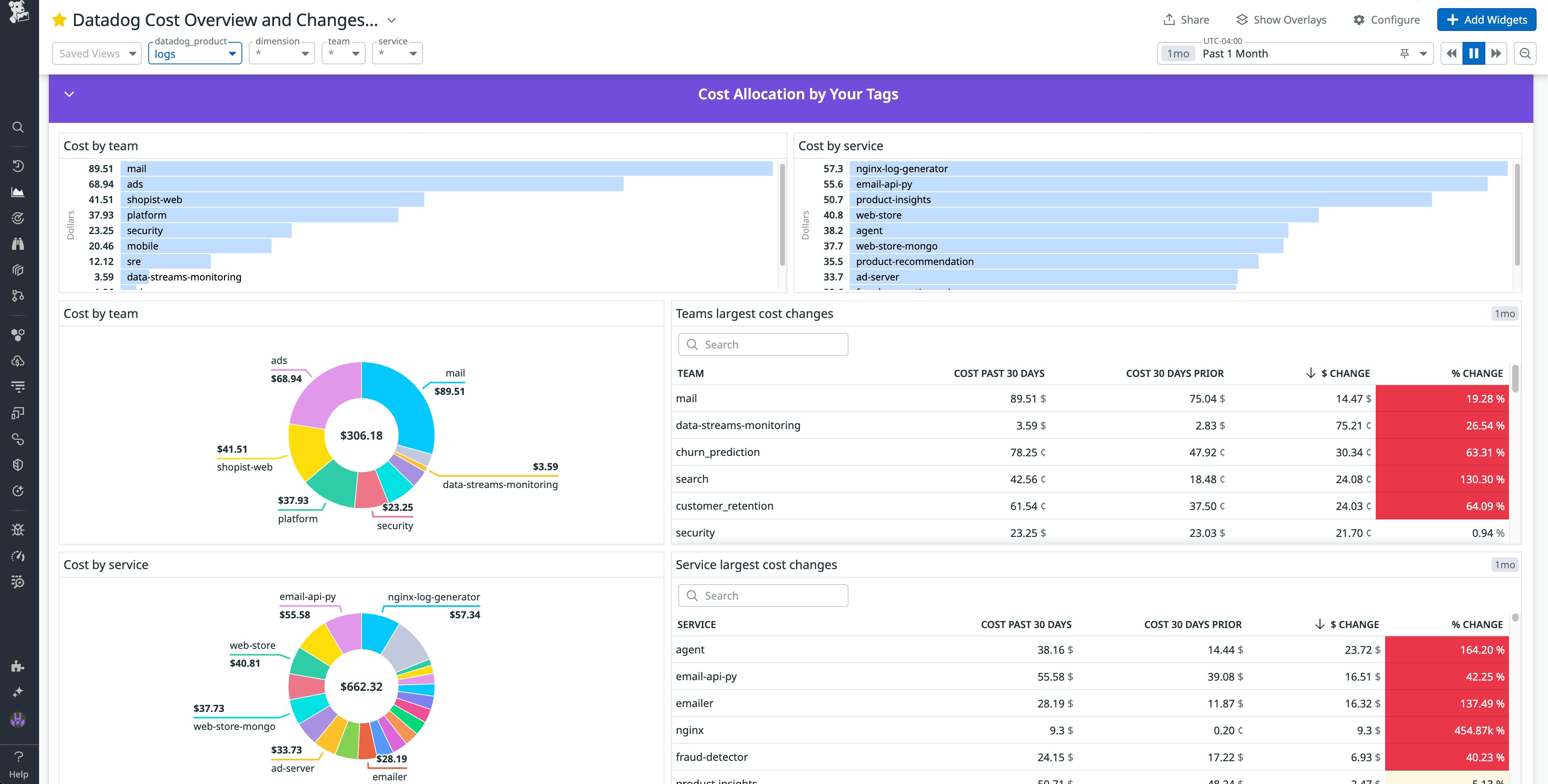
Reduce cost surprises
After you have clear visibility into how costs are allocated across products, teams, and services, you can set up cost monitors to proactively identify unexpected changes. These alerts help reduce end-of-month surprises by notifying the right teams early on. In the monitor shown in the following screenshot, an alert will trigger if the cost of the logs increases by more than 5% and at least $500.
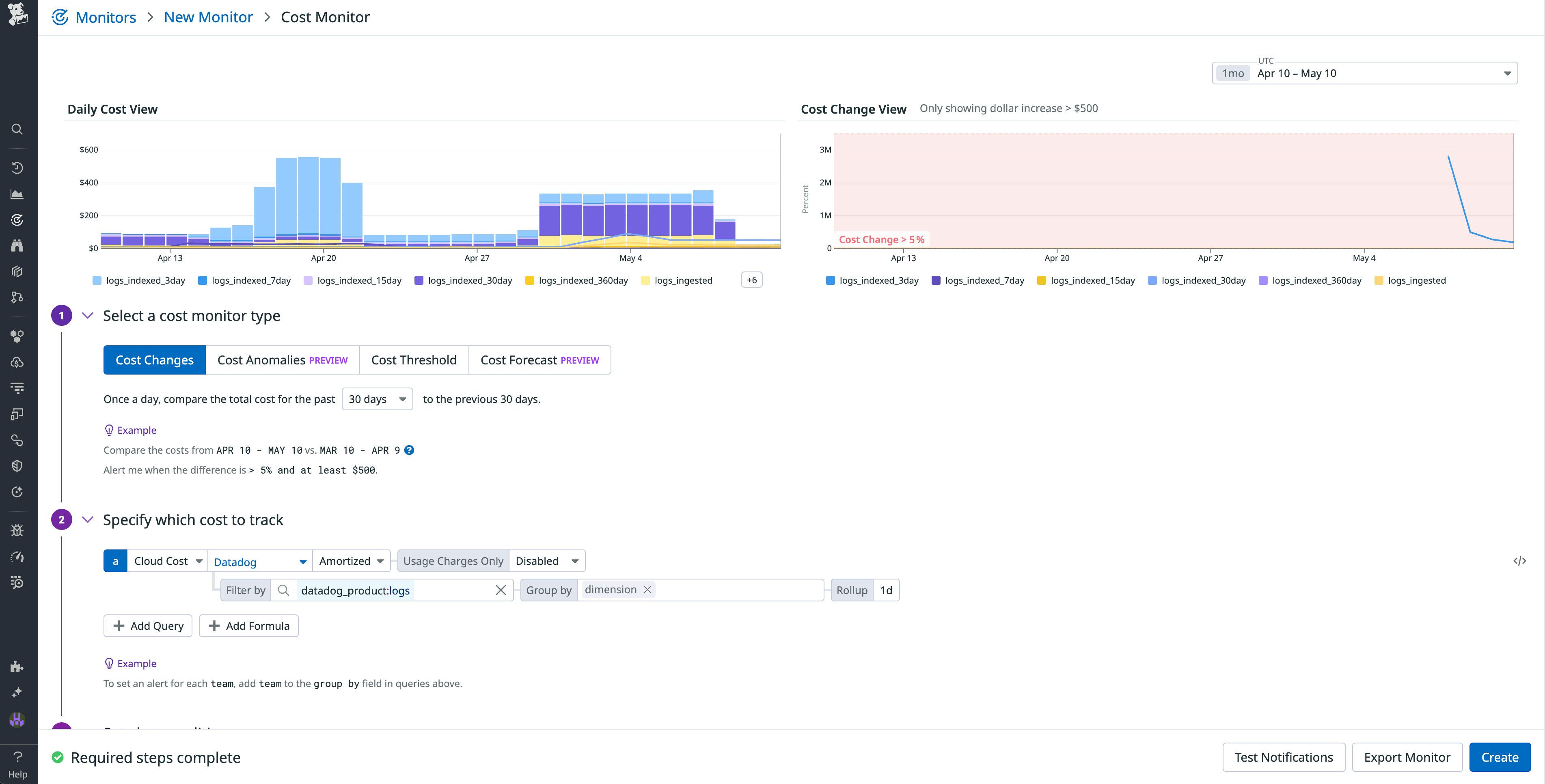
By setting up cost alerts, your teams can take faster action—investigating issues, optimizing usage, or contacting service owners—to remediate problems.
Understand your total cost of ownership with CCM
For CCM customers, you can see your Datadog costs alongside costs from cloud and SaaS providers. As a result, you can measure your total cost of ownership and conduct end-to-end investigations for unexpected changes in your bill—all in one place.
Datadog cost metrics are also integrated into Datadog Software Catalog and key CCM features such as budgets and tag pipelines, giving you even deeper insight into your full cloud and observability spend.
For example, you can see these costs directly in Software Catalog with the Total Cost column. This column gives your service owners and teams a quick view into the total spend of each service, helping them immediately pinpoint the source of high costs across your infrastructure.
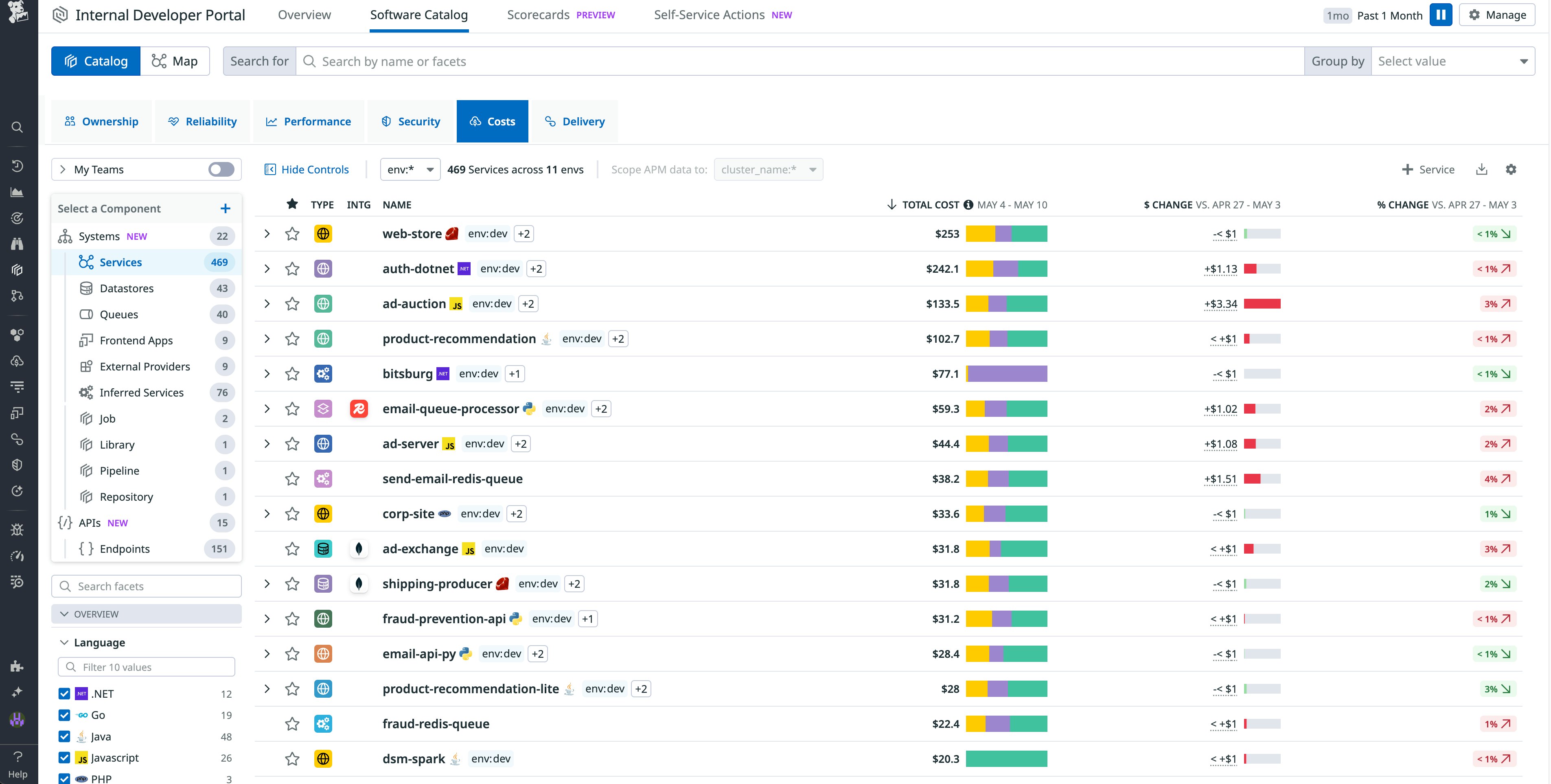
Get started with Datadog cost data today
In CCM, you now get Datadog cost data embedded in your everyday Datadog workflows. You can use this information to allocate spend to the appropriate teams, identify changes that affect your costs, and reduce cost surprises.
Datadog cost data is generally available for CCM customers and non-CCM customers at no additional cost. It’s also accessible in every Datadog organization—from parent organizations to sub-organizations. No matter how your account is structured, you can start tracking your spend across all parts of it immediately.
For more information, check out the CCM documentation about Datadog costs. If you’re new to Datadog, you can sign up for a 14-day free trial to get started.
